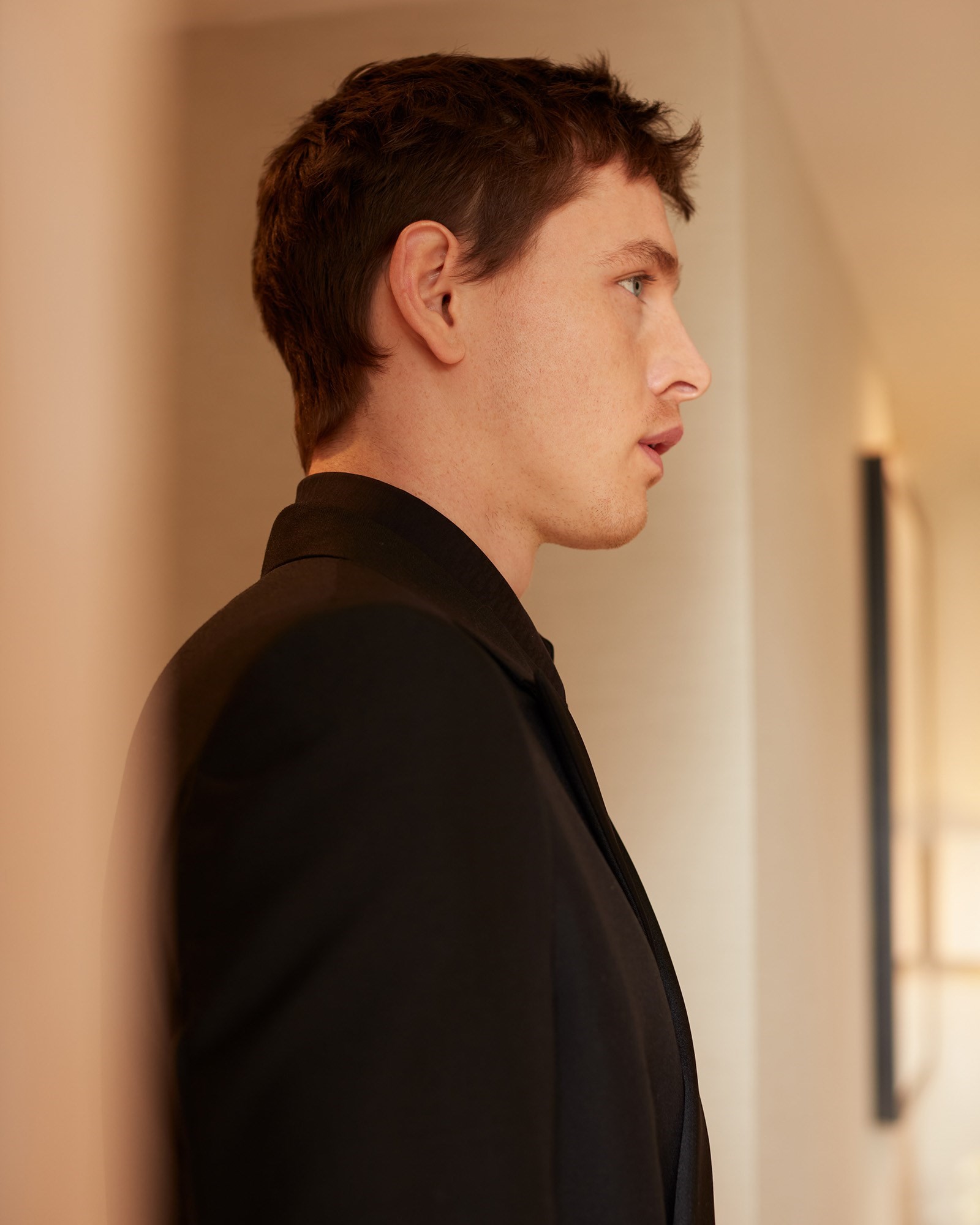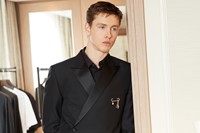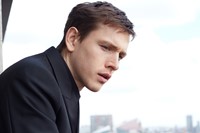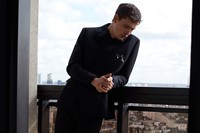The day before the Baftas, Harris Dickinson is pondering his nomination for the EE Rising Star Award. “Well, the concept of a star is quite a peculiar one, isn’t it? Especially when you sort of attach that to a person,” says Dickinson when we meet in a Knightsbridge hotel room. He’s taking a break after being fitted for the custom Dior tuxedo he’ll wear to Sunday night’s ceremony at the Royal Albert Hall. “I guess I’ve never thought of the kind of actor I want to be as, like, a star,” Dickinson continues. “Stars for me have always been rock stars or people with this kind of grand public profile. But I guess you could also link it with connotations of success and acclaim. I mean, it’s a weird one, isn’t it? I don’t know.”
To outsiders, there’s little doubt Dickinson has earned his rising star status. In recent months we’ve seen the 25-year-old from north-east London light up two very different film roles. In The King's Man, director Matthew Vaughn’s prequel to his Kingsman spy blockbusters, he plays Conrad, a wilful young man who defies his father by signing up to fight in World War I. Gradually, Conrad learns the hard way why his dad Orlando (Ralph Fiennes) was so opposed to him becoming a soldier. Then in Joanna Hogg’s fantastic coming-of-age drama The Souvenir Part II, Dickinson handles the tricky role of an actor struggling to grasp a rather ambiguous part. It’s made difficult for Dickinson’s character, Pete, because he is playing a fictionalised version of a tragic real-life figure: one who had a profound effect on film student director Julie (Honor Swinton Byrne).
Dickinson says he chose to wear Dior menswear for his big night at the Baftas because he “absolutely loves” the work of the label’s artistic director, Kim Jones. He was particularly taken with December’s Autumn/Winter 2022 show, which was inspired by the works of Jack Kerouac. “They’ve been really collaborative with what I want to wear, which I really like, instead of [me] just being a clothes horse,” he says. Dickinson admits he’s not the kind of person who can slip into anything that’s put in front of him. “There are two parts of me,” he explains. “There’s the actor who would wear something ridiculous that’s so not me for the work. And there’s the side of me that really knows what clothes I like as a person. I think I have quite strong opinions on what I don’t want to wear. And I’ll say it; I can be quite upfront about it.”
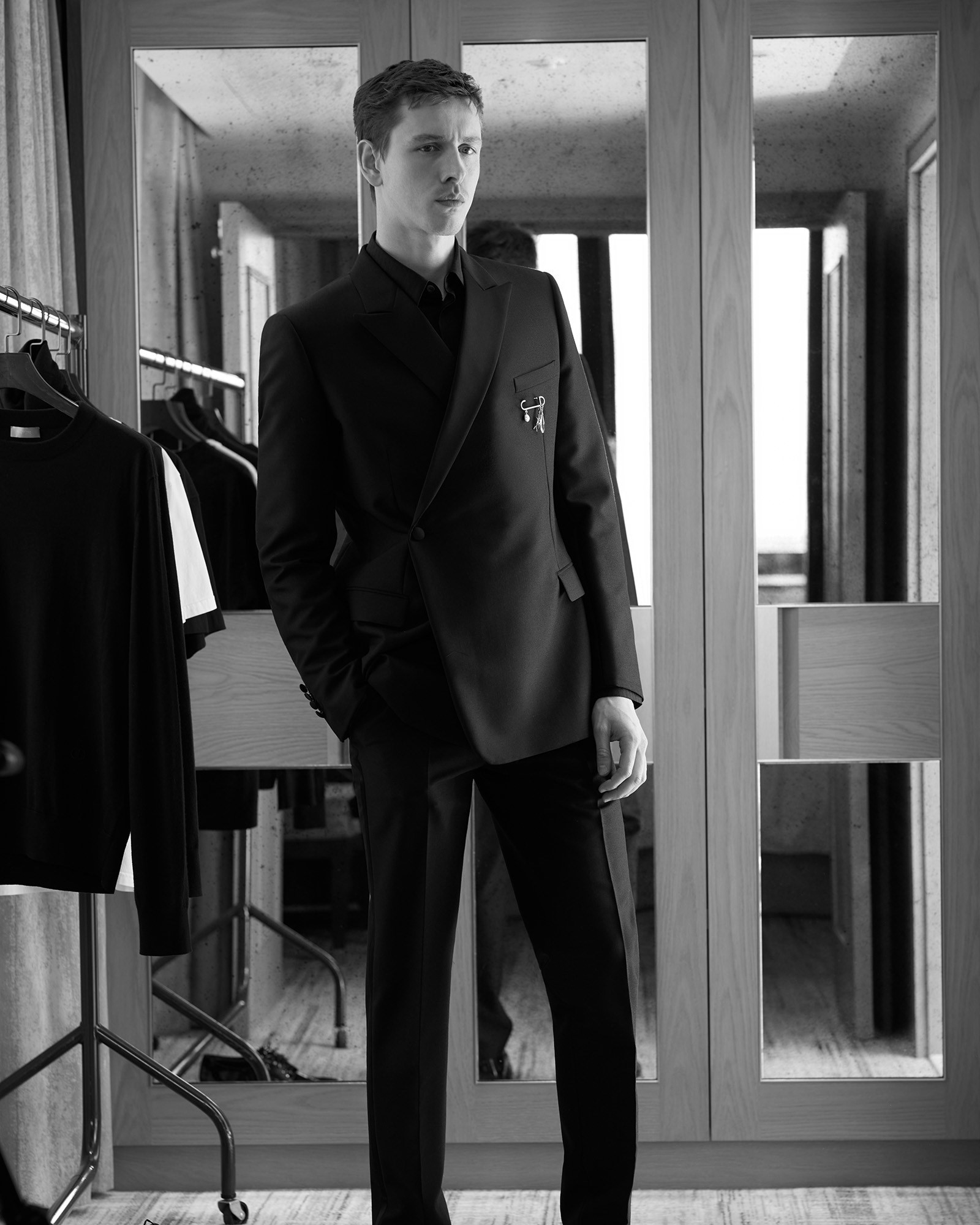
At the Baftas, Hickinson is pipped to the EE Rising Star Award by Lashana Lynch, the actress riding high on her Bond role in No Time to Die. Still, this hardly diminishes his impressive career trajectory since breaking through in 2017’s Beach Rats, a beautiful queer-themed indie film directed by Eliza Hittman. Dickinson is utterly convincing and wrenchingly tender as Frankie, a Brooklyn teenager who acts macho in front of his friends, but is secretly grappling with the realisation that he is attracted to men. Today, Dickinson acknowledges that Beach Rats was “massively important” to establishing him as an actor who can inhabit a complicated and perhaps even contradictory character.
“Ironically, I’d been auditioning here in London to no avail and it turned out that going to do a film in the outskirts of Brooklyn was the one that gave me that visibility and platform,” he recalls. “I’m eternally grateful to Eliza for giving me that opportunity to step into that world and show a part of myself that I otherwise wouldn’t have been able to show. That kind of vulnerability, you know, it’s a part of me as well.”
Since Beach Rats, Dickinson has appeared in everything from a glossy Disney blockbuster (2018’s Maleficent: Mistress of Evil) to a gritty British indie film about teenage drug mules (2019’s County Lines). He says he picks his parts based on “the people involved and the script”. “I think the bottom line is this: it needs to be a good story, [a] good character,” he says. “And then, is that story going to be captured correctly in all senses? If the director’s right, you’re open to the exploration [involved] and you allow yourself to go on the journey.” He concedes there is “an element of strategy” to his career choices, then adds a caveat: “But it has to align with instinct and choice. You know, it can’t just be like a business model.”
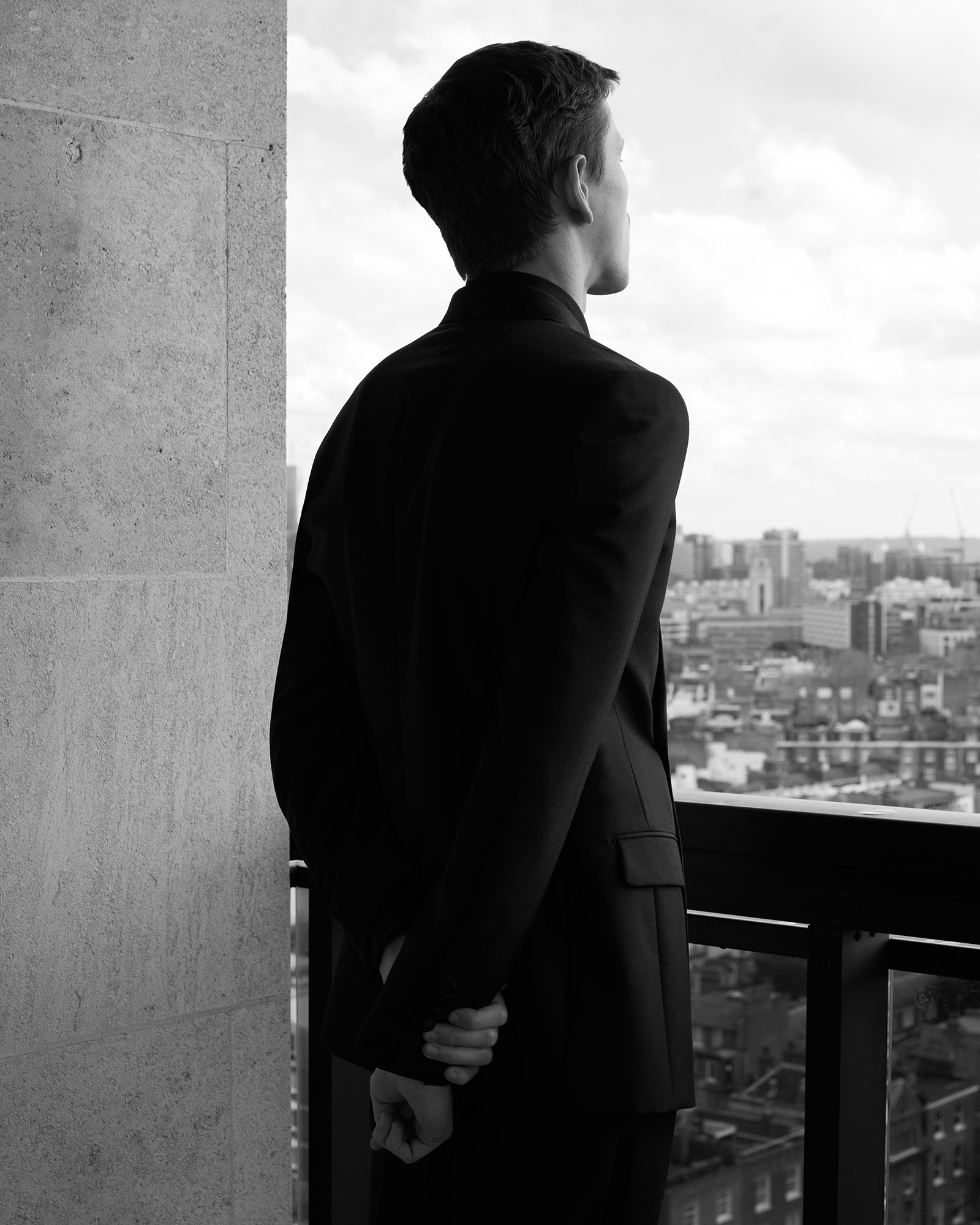
We’ll see Dickinson next in Where the Crawdads Sing, the film adaptation of Delia Owens’ bestselling novel about a troubled young woman growing up in 1950s North Carolina who becomes a murder suspect. He says he was initially attracted to the project because of Normal People’s Daisy Edgar-Jones, who plays the female lead, but then he found himself “intrigued and scared” by his own character: high-school hero Chase Andrews. “He is someone who is so far away from me,” Dickinson explains. “He’s the archetype of an American footballer: a jock, the star athlete in school. That wasn’t my experience at all. Like, I didn’t play sports in school and I wasn’t popular. [This character] has so much confidence, too much confidence. And I remember thinking, ‘OK, this is scary.’ And that kind of made me want to go there.”
Getting under the skin of this toxic character definitely had an effect on Dickinson. “I didn’t feel great after that,” he says, “and not because of the experience: I had a lovely time on the actual job, and the people were incredible. But in terms of the person [I was playing] and the energy that comes with that, it’s just not very nice.” He says he’s already learned the importance of taking time off between acting roles, especially emotionally draining ones like Chase Andrews. “When I left school, I was working three, four different jobs,” he says. “And when I wasn’t getting any acting work, it was all about work: trying to build this, get this, get that. And as soon as I felt like, ‘OK, I don’t have to do that,’ I stopped doing that. Because I value my life as well. I don’t just live to work because I don’t think that’s healthy or desirable.”
“Don’t get me wrong,” Dickinson adds, “I love my work, but I can’t let it be everything because then it would be boring.” It’s precisely this measured, sensible attitude that should stand him in good stead as his star continues to rise.
